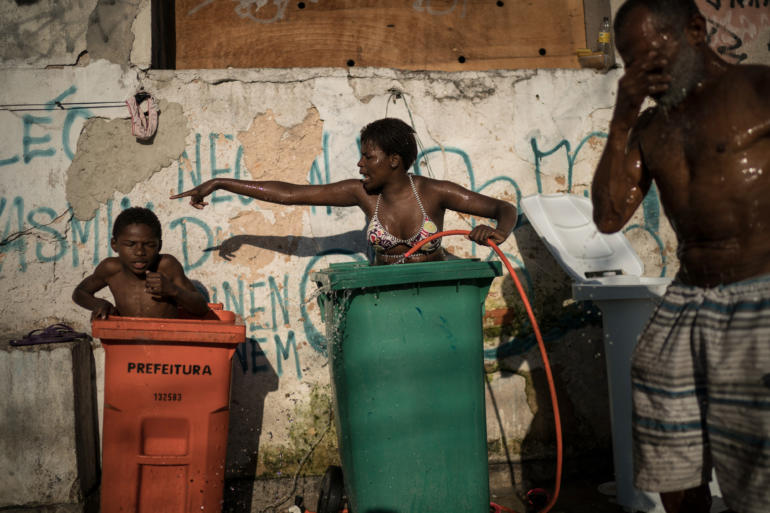It’s been 27-years since the U.N. General Assembly declared October 17 as the International Day for the Eradication of Poverty. This year’s theme is: ‘Acting together to empower children, their families and communities to end poverty’. The International Labour Organization is urging full and decent employment for the millions worldwide struggling to make ends meet.
CGTN’s Gerald Tan reports on the plight of domestic workers in Latin America.
It’s morning in Rio de Janeiro. Fabiana Barbosa de Souza gets to her employers’ home, hugs their kids, and begins tackling chores.
She says, “As soon as I arrive, I do the dishes while my coffee is brewing. And today is Friday, so it’s ironing day.”
More than 7,600 kilometers away in Mexico City, Ignacia ‘Nachita’ Ponciano starts her day in a similar fashion. But as a live-in domestic worker, her commute is just a short walk to the kitchen.
Nachita shares, “I’ve been here my whole life and my son was born here. Yes, I see the family here as my own family.”
Fabiana and Nachita represent some of the 18 million domestic workers across Latin America. The occupation is one of the most important for women in the region. But around three-quarters of such work happens off the books.
Wages are meant to be regulated, but in an informal economy, that’s almost impossible to enforce. And it can mean a lifetime of poverty, as Fabiana knows full well: “When my mother came to Rio with us, she made a decision: she asked my sister and me who wanted to work to help her. I was 13, I raised my hand and said: ‘Let my brothers study, I will face this with you.’ And I haven’t stopped since,” she says.
More than a dozen countries in Latin America have introduced rules mandating minimum wage and other benefits – an effort to help fight poverty and protect workers’ rights.
But the reality is quite different. Socioeconomic unrest can upend the system. This has been the case in Brazil, still climbing out of an economic crash four years ago. Many people are forced to take whatever work they can find.
Fabiana says she and her husband scrape by. They dream of escaping the cycle of hardship. She says, “To build my house and stop paying rent. That’s it. No longer rent and build my house. I wish I can live there with my granddaughter and daughter. That’s all.”
 CGTN America
CGTN America
 People use tall trash containers to shower outside their squatter building that used to house the Brazilian Institute of Geography and Statistics in Rio de Janeiro, Brazil. (AP Photo/Felipe Dana)
People use tall trash containers to shower outside their squatter building that used to house the Brazilian Institute of Geography and Statistics in Rio de Janeiro, Brazil. (AP Photo/Felipe Dana)
